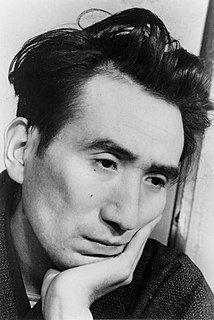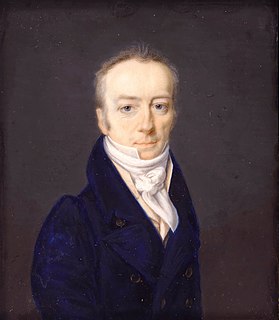A Quote by Aristotle
For imitation is natural to man from his infancy. Man differs from other animals particularly in this, that he is imitative, and acquires his rudiments of knowledge in this way; besides, the delight in it is universal.
Related Quotes
Desire , to know why, and how, CURIOSITY; such as is in no living creature but Man ; so that Man is distinguished, not only by his Reason; but also by this singular Passion from other Animals ; in whom the appetite of food, and other pleasures of Sense, by predominance, take away the care of knowing causes; which is a Lust of the mind, that by a perseverance of delight in the continual and indefatigable generation of Knowledge, exceedeth the short vehemence of any carnal Pleasure.
The heavenly bodies are nothing but a continuous song for several voices (perceived by the intellect, not by the ear); a music which... sets landmarks in the immeasurable flow of time. It is therefore, no longer surprising that man, in imitation of his creator, has at last discovered the art of figured song, which was unknown to the ancients. Man wanted to reproduce the continuity of cosmic time... to obtain a sample test of the delight of the Divine Creator in His works, and to partake of his joy by making music in the imitation of God.
Mother, recently I have discovered the one way in which human beings differ completely from other animals. Man has, I know, language, knowledge, principles, and social order, but don't all the other animals have them too, granted the difference of degree? Perhaps the animals even have religions. Man boasts of being the lord of all creation, but it would seem as if essentially he does not differ in the least from other animals. But, Mother, there was one way I thought of. Perhaps you won't understand. It's a faculty absolutely unique to man - having secrets. Can you see what I mean?
The lover of nature is he whose inward and outward senses are still truly adjusted to each other; who has retained the spirit of infancy even into the era of manhood. His intercourse with heaven and earth, becomes part of his daily food. In the presence of nature, a wild delight runs through the man, in spite of real sorrows.
Man is the only Patriot. He sets himself apart in his own country, under his own flag, and sneers at the other nations, and keeps multitudinous uniformed assassins on hand at heavy expense to grab slices of other people's countries, and keep them from grabbing slices of his. And in the intervals between campaigns he washes the blood off his hands and works for the universal brotherhood of man - with his mouth.
When a man sought knowledge, it would not be long before it could be seen in his humbleness, his sight, upon his tongue and his hands, in his prayer, in his speech and in his disinterest (zuhd) in worldly allurements. And a man would acquire a portion of knowledge and put it into practice, and it would be better for him than the world and all it contains - if he owned it he would give it in exchange for the hereafter.
There is, perhaps, one universal truth about all forms of human cognition: the ability to deal with knowledge is hugely exceeded by the potential knowledge contained in man's environment. To cope with this diversity, man's perception, his memory, and his thought processes early become governed by strategies for protecting his limited capacities from the confusion of overloading. We tend to perceive things schematically, for example, rather than in detail, or we represent a class of diverse things by some sort of averaged "typical instance.









































